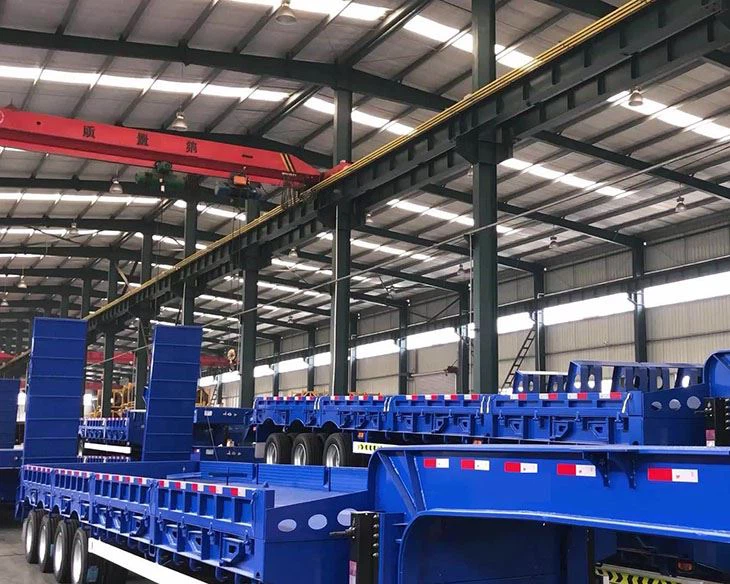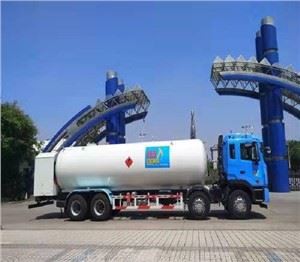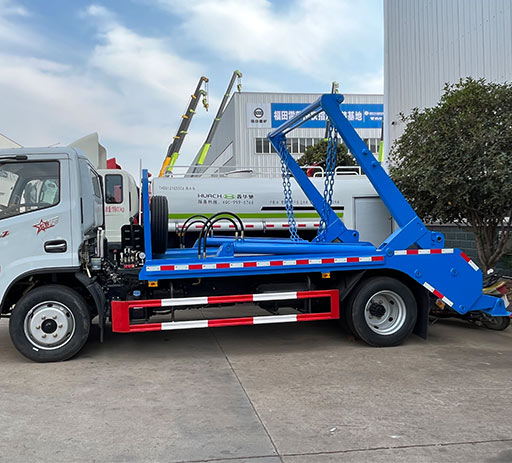Rolloff Containers: The Ultimate Guide to Efficient Waste Management

Waste management is a crucial aspect of maintaining a clean and sustainable environment. One effective solution that has gained popularity for both residential and commercial uses is the rolloff container. This comprehensive guide will explore the various facets of rolloff containers, including their types, benefits, applications, and tips for choosing the right one for your project.
What Are Rolloff Containers?

Rolloff containers, also known as roll-off dumpsters, are large, open-top metal boxes used for the collection and transportation of waste materials. They are called ‘rolloff’ because they roll off the back of a specialized truck when delivered to a site. These containers are available in various sizes and are designed to accommodate different types of waste, making them a versatile option for numerous applications.
Types of Rolloff Containers
Standard Rolloff Containers
Typically ranging from 10 to 40 cubic yards, standard rolloff containers are the most common type used in residential and commercial projects. They are ideal for general waste disposal, construction debris, and large cleanouts.
Compact Rolloff Containers
Compact rolloff containers are smaller in size, usually between 5 to 10 cubic yards. They are perfect for projects with limited space or for small-scale waste management needs, such as home renovations or yard cleanups.
Specialized Rolloff Containers
These containers are designed for specific types of waste, such as:
- Concrete Containers: For heavy materials like concrete, bricks, and asphalt.
- Hazardous Waste Containers: For toxic materials that require special handling.
- Electronics Containers: For the disposal of old electronics and appliances.
Benefits of Using Rolloff Containers
Convenience
Rolloff containers provide a hassle-free waste disposal solution. They are delivered directly to your site and picked up when full, eliminating the need for multiple trips to a landfill.
Cost-Effectiveness
Renting a rolloff container can be more economical than traditional waste disposal methods. It allows for bulk disposal, potentially reducing overall costs associated with waste management.
Environmental Impact
Using a rolloff container promotes responsible waste management. It helps to separate recyclable materials and encourages proper disposal methods, thus minimizing landfill waste.
Safety
Rolloff containers help to keep job sites organized and safe by containing waste materials in one location, reducing the risk of accidents and injuries.
How to Choose the Right Rolloff Container
Assess Your Needs
Before renting a rolloff container, determine the type and volume of waste you’ll be disposing of. This assessment will guide you to the appropriate size and type of container.
Size Considerations
Rolloff containers come in various sizes, typically measured in cubic yards. Here’s a quick reference table:
| Container Size (Cubic Yards) | Estimated Capacity (Trash Bags) | Common Uses |
|---|---|---|
| 10 | 50 | Small renovation projects |
| 20 | 100 | Medium construction projects |
| 30 | 150 | Large scale cleanouts |
| 40 | 200 | Commercial construction or demolitions |
Local Regulations
Check with your local authorities regarding regulations for rolloff container usage. Some areas may have restrictions on placement and disposal practices.
Reputation of Rental Service

Choose a reputable rolloff container rental service. Read reviews, and ask for recommendations to ensure you’re working with a reliable provider.
Common Applications for Rolloff Containers
Residential Projects
Rolloff containers are ideal for home improvement initiatives, such as:
- Renovations and remodels
- Spring cleaning
- Yard waste disposal
Construction Sites
Construction projects often produce significant waste. Rolloff containers streamline the disposal process, keeping work areas safe and organized.
Commercial Uses
Businesses use rolloff containers for various purposes, including:
- Office cleanouts
- Event clean-up after large gatherings
- Routine waste disposal for retailers
Best Practices for Using Rolloff Containers
Proper Loading Techniques
Load the container efficiently to maximize space. Break down large items and distribute weight evenly to avoid overloading one side.
Understanding Weight Limits
Each container has a weight limit, typically around 1 ton per 10 cubic yards. Exceeding this limit can incur additional fees or complications during pickup.
Notify the Rental Service
If you need the container for an extended period or if it becomes full before your scheduled pickup, notify the rental service as soon as possible to adjust arrangements.
Cost Factors of Rolloff Container Rental
Rental Duration
Most companies charge based on the duration for which you need the container. Longer rentals typically involve higher costs.
Size of the Container
The larger the container, the higher the rental price. Choose a size that fits your needs without overpaying for unnecessary space.
Weight of Waste
Cost may also vary based on the type and weight of waste disposed of, as some materials can incur additional fees.
Local Disposal Fees
Different locations have varying landfill fees that may affect your total rental cost. Always clarify with your rental provider about potential hidden costs.
FAQ Section
1. What materials can I put in a rolloff container?
Most rolloff containers can accommodate construction debris, household waste, landscaping materials, and more. However, hazardous materials, chemicals, and electronics typically require specialized containers.
2. How long can I keep a rolloff container?
You can generally rent a container for a week or more, but it varies by provider. Be sure to clarify the rental duration when booking.

3. How is the container emptied?
When full, the rental company will come to pick up the container using a special truck that lifts and empties the contents at a designated landfill or recycling facility.
4. Can I place the container on the street?
Depending on local regulations, you may need a permit to place a rolloff container on the street. Always check with your municipality before setting it up.
5. Are there weight limits for rolloff containers?
Yes, each container has a weight limit that typically ranges from 1 ton per 10 cubic yards. Exceeding this limit can lead to additional charges.
6. How do I prepare for the delivery of a rolloff container?
Ensure a clear and accessible space for the container upon arrival. Identify a flat area that can support the container’s weight and is free from overhead obstructions.
